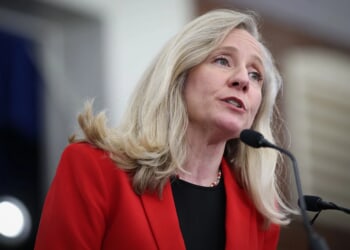David Heathcote is chair of the Huddersfield & Colne Valley Conservative Policy Forum and head of business development for an SME manufacturer in West Yorkshire.
The UK’s Auto Enrolment scheme, introduced under a Conservative government in 2012, provided a dramatic increase in the number of people saving for retirement. In 2021, 86 per cent of eligible private sector employees (around 14.4 million people) were saving into a workplace pension, up from just 42 per cent in 2012.
Auto enrolment currently applies to employees aged over 22 years, earning over £10k. Employers must contribute at least 3 per cent of qualifying earnings, with employees contributing a minimum of 5 per cent, including tax relief, creating a combined contribution of 8 per cent. For 2025/26, contributions are required on earnings between £6,240 (the Lower Earnings Limit) and £50,270 (Upper Earnings Limit).
Many of those benefitting from auto enrolment were previously poorly served or excluded from workplace pensions but with auto enrolment, more women, low earners and younger people are now building an asset for their future. This policy drove a boost of £32.9 billion real terms to pensions savings in 2021 compared to 2012.
However, there remain important sectors of the workforce who are not saving for retirement. A Department of Work and Pensions Impact Assessment considered potential participation rates and drivers of 18-21-year-olds, finding that only 26 per cent of the then 720,000 young people aged between 18 and 21 earning over £10k, were saving for a pension.
A policy review proposed lowering the age threshold for auto enrolment from 22 to 18 years and eliminating the lower limit of the ‘qualifying earnings band,’ thereby ensuring that contributions are made from the first pound earned.
During the passage of the resulting Pensions (Extension of Automatic Enrolment) Act 2023, the previous Conservative government confirmed its intention to reduce the lower age limit to 18 years old. The current Labour government has not yet introduced the changes, saying in November 2024 that it would consider “if and when to make changes to [auto enrolment], balancing the need for improved pension outcomes with the effects on businesses.”
Government and Conservative policy should be to immediately exercise the powers provided in the Pensions (Extension of Automatic Enrolment) Act 2023, namely:
- Reduce the qualifying age for pensions auto enrolment from 22 to 18 years
- Abolish the Lower Earnings Limit for qualifying earnings
This policy reflects traditional Conservative values of increased personal responsibility by making saving for the future the norm from an earlier age. It gives people more power over their own money, enabling them to save from the start of their careers rather than increasing tax income for HMRC.
The combined measures are expected to increase pension savings income by £45 billion over a 30-year period and to introduce 400,000 young people to pension saving, while increasing the private pension savings of a further 100,000 young people.
Removing the £6,240 Lower Earnings Limit ensures that all earnings count toward pension contributions, which increases their savings potential. More workers would have access to a pension with an employer contribution and, therefore, greater pension pots, supporting those with low earnings and multiple jobs.
It would increase an individual’s pension savings by £499 per year, based on the current contribution figure of 8 per cent. According to Rachel Vahey, head of policy development at AJ Bell PLC, this extra contribution could generate an additional £120k to the pension savings of an 18-year-old over a 50-year career.
The combined policy of lowering the auto enrolment eligible age and abolishing the Lower Earnings Limit was projected to increase participation of young workers from 26 per cent to between 74 per cent and 84 per cent, with a corresponding increase in total pension saving of £1.0bn to £1.1bn.
The cost to employees is moderate. Under auto enrolment, employees contribute 5 per cent of qualifying earnings. For a worker earning £20,000 annually, this would typically result in a pension contribution of £1,000 per year. However, thanks to income tax relief, the actual out-of-pocket cost is reduced to £800 annually – just £67 per month for a basic rate taxpayer. This is less than the cost of a daily latte in high street coffee chains – making pension saving both accessible and impactful.
While we welcome the recent announcement of a pensions commission, which will “consider” lowering the auto enrolment age, it is not expected to report to the government till 2027.
By all means, let the commission review the sustainability of UK pensions provision but the Secretary of State should, in consultation with employers and particularly SMEs, use the powers they now have to secure a comfortable retirement for today’s workforce.
As in 2012, Conservatives should lead the way and see the policy through.
2030 Group is a member of the Conservative Policy Forum, comprising a small group of Huddersfield based Conservative members and supporters, convened by David Heathcote.





![Gavin Newsom Threatens to 'Punch These Sons of B*thces in the Mouth' [WATCH]](https://www.right2024.com/wp-content/uploads/2025/08/Gavin-Newsom-Threatens-to-Punch-These-Sons-of-Bthces-in-350x250.jpg)
![ICE Arrests Illegal Alien Influencer During Her Livestream in Los Angeles: ‘You Bet We Did’ [WATCH]](https://www.right2024.com/wp-content/uploads/2025/08/ICE-Arrests-Illegal-Alien-Influencer-During-Her-Livestream-in-Los-350x250.jpg)








